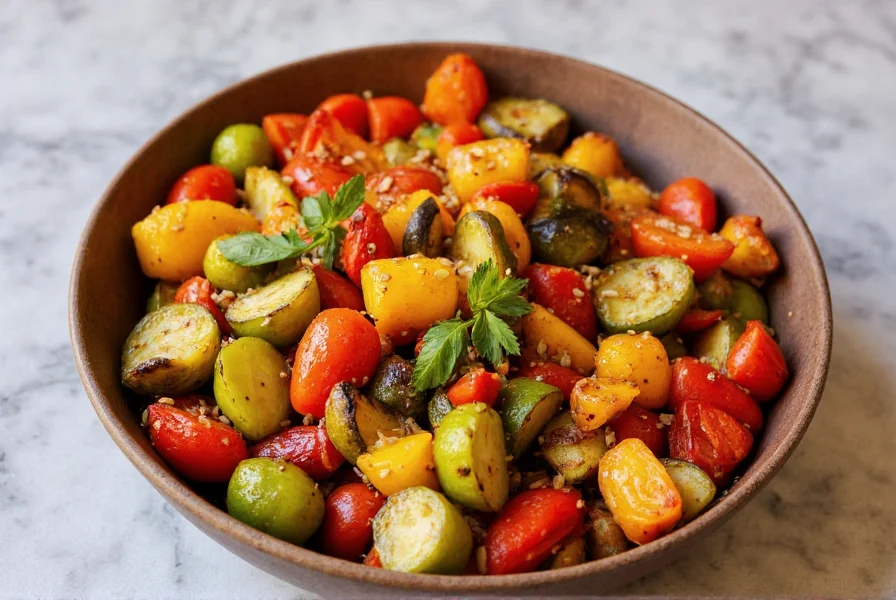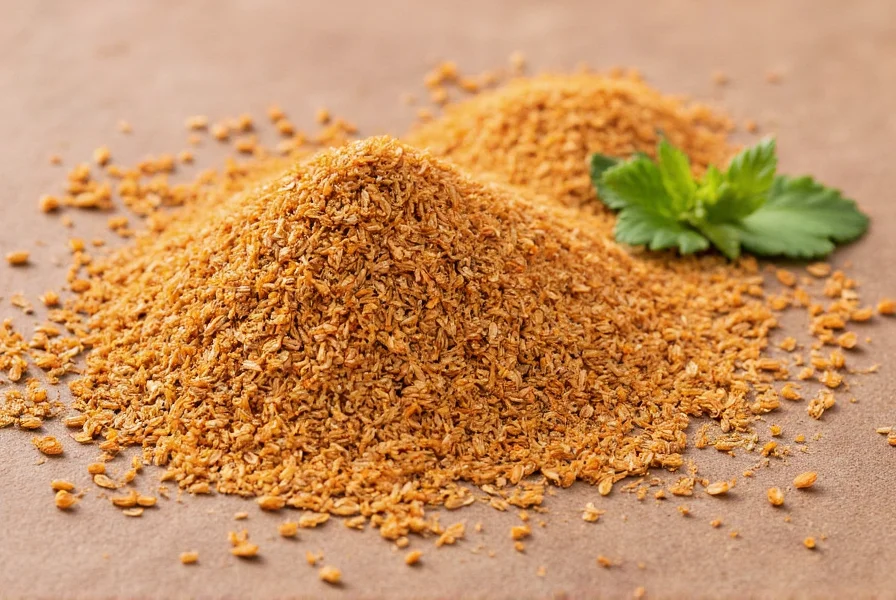Cumin, one of the world's oldest spices with origins tracing back to ancient Egypt, has gained renewed attention for its potential health properties. This aromatic seed from the Cuminum cyminum plant isn't just a flavor enhancer—it's packed with bioactive compounds that modern science continues to investigate for their health implications.
Nutritional Profile of Cumin
Per tablespoon (6g) of ground cumin contains approximately:
| Nutrient | Amount | % Daily Value |
|---|---|---|
| Calories | 23 | 1% |
| Protein | 1.1g | 2% |
| Fat | 1.3g | 2% |
| Carbohydrates | 2.6g | 1% |
| Fiber | 0.6g | 2% |
| Iron | 1.4mg | 8% |
| Magnesium | 25mg | 6% |
| Calcium | 20mg | 2% |
Beyond basic nutrition, cumin contains thymoquinone, cuminaldehyde, and other phytochemicals that contribute to its potential health effects. These compounds give cumin its distinctive aroma while providing antioxidant and anti-inflammatory properties that researchers continue to study.
Scientifically Supported Health Benefits of Cumin
Digestive Health Support
Multiple studies suggest cumin may enhance digestive enzyme production and bile secretion. Research published in Complementary Therapies in Medicine found that participants taking cumin extract experienced significant improvements in symptoms of irritable bowel syndrome compared to placebo. This evidence supports traditional uses of cumin for digestive discomfort, making is cumin good for digestion a question with promising scientific backing.
Blood Sugar Regulation
A 2014 study in Nutrition Research demonstrated that daily consumption of cumin powder significantly reduced fasting blood glucose and HbA1c levels in patients with type 2 diabetes. The researchers attributed these effects to cumin's potential to improve insulin sensitivity. While more research is needed, these findings suggest can cumin lower blood sugar may have a scientifically valid 'yes' under certain conditions.
Antioxidant and Anti-inflammatory Effects
Cumin ranks high on the ORAC (Oxygen Radical Absorbance Capacity) scale, indicating strong antioxidant capacity. A study in Food Chemistry found cumin extract effectively neutralized free radicals and reduced markers of oxidative stress. These cumin anti-inflammatory properties may contribute to its potential protective effects against chronic diseases.
Potential Concerns and Side Effects
Medication Interactions
Cumin may interact with certain medications, particularly blood thinners like warfarin due to its vitamin K content. Individuals taking diabetes medications should monitor blood sugar closely when consuming large amounts of cumin, as it may enhance the medication's effects.
Excessive Consumption Risks
While culinary use is generally safe, extremely high doses (beyond typical dietary amounts) may cause:
- Liver enzyme alterations in sensitive individuals
- Increased risk of bleeding for those on anticoagulants
- Digestive upset in some people
- Potential uterine stimulation (caution for pregnant women)
The question is too much cumin bad for you has a definite 'yes' when consumption exceeds reasonable culinary amounts. Most health professionals recommend sticking to typical dietary quantities—about 1/4 to 1/2 teaspoon daily for general health benefits.
How to Incorporate Cumin Healthily
To maximize potential health benefits while minimizing risks:
- Use freshly ground cumin seeds when possible—they contain higher levels of active compounds
- Pair cumin with healthy fats (like olive oil) to enhance absorption of its fat-soluble compounds
- Combine with other spices like turmeric for potential synergistic effects
- Store in airtight containers away from light to preserve potency
For those wondering how much cumin should I eat daily, culinary use (typically 1/4-1/2 teaspoon per serving) is considered safe for most adults. Concentrated supplements should only be taken under medical supervision.

Conclusion: Cumin's Place in a Healthy Diet
Cumin offers more than just distinctive flavor—it brings potential health benefits supported by growing scientific evidence. While not a miracle cure, incorporating this ancient spice into your regular cooking can contribute to a health-promoting diet. The key is moderation and understanding that cumin works best as part of an overall balanced eating pattern rather than as a standalone solution.
When evaluating the health benefits of cumin seeds versus powder, both forms offer benefits, though whole seeds generally retain more volatile compounds until ground. For optimal cumin spice nutritional value, purchase from reputable sources and store properly to maintain freshness and potency.
Frequently Asked Questions
Does cumin help with weight loss?
Some preliminary studies suggest cumin may support weight management when combined with a healthy diet and exercise. A 2015 study in Complementary Therapies in Medicine found that women taking cumin supplements lost more weight than the control group, but more research is needed to confirm these effects. Cumin alone is not a weight loss solution.
Can I consume cumin if I have diabetes?
Yes, cumin may actually benefit people with diabetes as research shows it can help regulate blood sugar. However, if you're taking diabetes medication, consult your doctor first as cumin may enhance the medication's effects, potentially causing blood sugar to drop too low.
Is cumin safe during pregnancy?
Culinary amounts of cumin are generally considered safe during pregnancy. However, medicinal amounts or supplements should be avoided as high doses may stimulate the uterus. Always consult your healthcare provider before making significant dietary changes during pregnancy.
How does cumin compare to other spices for health benefits?
Cumin has unique health properties, particularly for digestion and potential blood sugar regulation. While it shares antioxidant properties with many spices, its specific compound profile makes it valuable. For maximum benefit, use cumin as part of a varied spice regimen rather than relying on any single spice.
Can cumin improve skin health?
Cumin's antioxidant and anti-inflammatory properties may benefit skin health when consumed as part of a balanced diet. Some traditional medicine systems use cumin topically, but scientific evidence for direct skin benefits is limited compared to its internal health effects.











 浙公网安备
33010002000092号
浙公网安备
33010002000092号 浙B2-20120091-4
浙B2-20120091-4